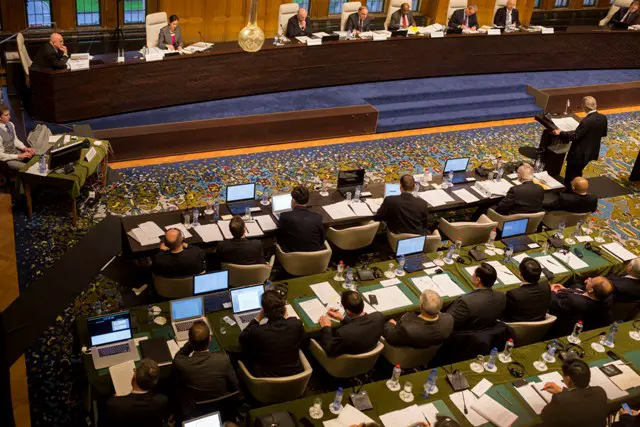The Permanent Court of Arbitration (PCA) in The Hague issued a 479-page award over the South China Sea case on Tuesday in support of the Philippine side, setting a dangerous precedent of abusing the arbitration system, and drawing a wide-range of criticism from Chinese and foreign experts.
"Arbitration is defined in the dictionary as a dispute where the parties have agreed to settle it by arbitration," said Stephen Perry, chairman of the 48 Group Club, a British business group.
"Clearly China does not accept arbitration to settle the dispute, so the Court should not have agreed to hear this dispute presented by only one party," he said.
"I have been involved in many hundreds of arbitrations and always both parties agree on arbitration, or there is no arbitration," he added.
Shahid Qureshi, London Post's editor and political analyst, said the fact that "the tribunal has allowed the case to go ahead in spite of its lack of justifiable jurisdiction" poses a big question mark to the tribunal's "intention" and "interest."
"I am of the view that the tribunal must review its position and jurisdiction for the sake of institution it stands for. Otherwise it will become a joke in the legal history as they did not follow the due process of law," he noted.
According to Vladimir Petrovsky, a major researcher at the Moscow-based Institute for Far Eastern Studies, China's non-acceptance stance over the arbitration ruling is the "only reasonable position" from the viewpoint of international law.
If the Philippines recognizes the ruling and China does not, the arbitration should not be recognized as legitimate and legal, he said.
Joseph Matthews, director of ASEAN Education Center, said that from the beginning, the arbitral tribunal was under the sway of the United States and its ally Japan.
"This is a one-sided verdict based on China-phobia, which ultimately creates tension, and confrontational situations in the South China Sea," he said.
"Today's ruling will change nothing in the South China Sea," he emphasized.
Omar al-Mekdad, a Syrian expert on Chinese affairs, told Xinhua, "The decision taken by the tribunal in The Hague is politicized and has deliberately overlooked the historic facts about China's sovereign rights over the South China Sea territory."
"China has every right to take whatever it sees proper to respond to this outrageous decision," he said.
Ashfaqur Rahman, former Bangladeshi ambassador to China, found it very funny to see the work of the tribunal. "What the tribunal has done can never be called an arbitration," he said.
"Arbitration is a process in which both the disputed parties agree to argue their cases and agree to accept verdict whatever it is," he explained. In this case, "we all know that China was not a party. It did not take part in the process. So how can it be called an arbitration?"
"The tribunal should not have accepted jurisdiction," said Tom Zwart, a law professor at Utrecht University in the Netherlands. "In Asia, states have been dealing with the South China Sea for ages in a peaceful and constructive manner. People should go back to the situation where they tried to find diplomatic solutions."
George Tzogopoulos, a lecturer at the European Institute and the Democritus University of Thrace in Greece, warned that Asia must not be divided over the tribunal's decision, as "a potential conflict in the South China Sea will benefit no one."
The PCA in The Hague ruled on Tuesday in sweeping favor of the claims filed by the administration of former Philippine President Benigno S. Aquino III.
The Chinese Foreign Ministry immediately issued a statement saying it "solemnly declares that the award is null and void and has no binding force. China neither accepts nor recognizes it."
(APD)
 简体中文
简体中文

